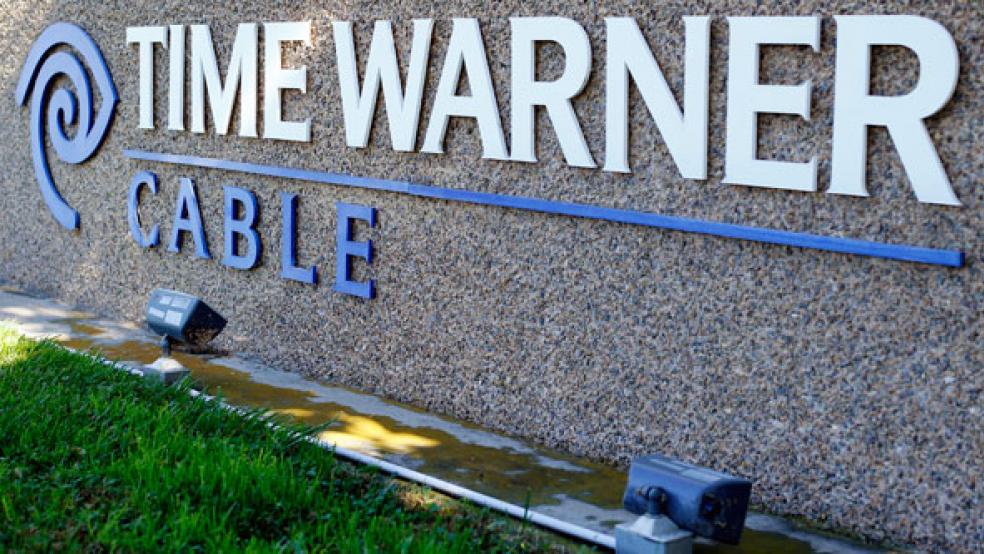The first deadline for interested parties to file formal comments with the Federal Communications Commission regarding the proposed $45 billion merger of Comcast and Time Warner Cable passed earlier this week, and the roster of those who chimed in on the deal was impressive — and, in some regards, impressively divided.
In all, more than 75,000 filings were submitted by companies, advocacy groups, politicians and individuals since April, including more than 51,000 in the last 30 days.
Related: Why federal Watchdogs Are Barking More About Mergers
Opposition to the deal was widespread and intense, with consumer groups warning that Comcast could come away from the deal with “unprecedented gatekeeper control over our nation’s telecommunications and media landscape.”
“The consolidation of the largest cable television providers would create a media juggernaut that would stifle completion and hurt consumers who would ultimately pay higher prices for even worse service,” John M. Simpson of public interest advocacy group Consumer Watchdog wrote in a letter to the FCC.
The merger of the country’s two largest cable providers, even after they divest nearly 4 million customers to Charter Communications in an effort to win regulatory approval, would result in a company that serves 75.4 million homes, or 62 percent of U.S. households, according to Comcast filings cited by telecom industry association Comptel, which petitioned the FCC to reject the deal.
Corporate response to the deal broke along predictable lines, with Comcast partners like Cisco Systems and Tivo backing the deal while Netflix, Dish Network, Cogent Communications Holdings weighed in against it. In Netflix’s case that meant a 256-page filing that argued the merger would result in “serious public interest harms stemming from the combined entity’s increased ability and incentive to harm providers of Internet content.” (TheBlazeTV, Glenn Beck’s online video network, which has failed to gain carriage on Comcast or Time Warner systems, also argued that the deal was not in the public interest.)
Yet, opposition to the deal was far from universal (sorry, no NBCUniversal pun intended). The NAACP, for example, said it expects Comcast to invest in upgrading Time Warner’s systems and thus the deal would “create opportunities for vendors, contractors and corporate employees.” And the mayors of major metropolitan areas were split, at least in tone.
Bill de Blasio of New York and Eric Garcetti of Los Angeles expressed significant concerns about customer service and the availability of affordable high-speed Internet service, while Rahm Emanuel of Chicago and Michael Nutter of Philadelphia, where Comcast is based, were more strongly in favor of the deal. Nutter led a group of 52 mayors who wrote to support approval of the deal. Comcast said nearly 70 mayors and more than 80 business groups and chambers of commerce had come out in favor of the merger.
| Pro: | Con: |
| Chicago Mayor Rahm Emanuel: “From our perspective, we do not believe the proposed transaction would reduce choice, elevate prices, or otherwise harm consumers. Further, we are optimistic that the increased resources of the combined corporation will lead to more investment in local network infrastructure and faster Internet speeds.”
|
New York City Mayor Bill de Blasio: “With few alternatives available to consumers, the expanded Comcast will have incentives to drive rates further upward. Given the limited competition in the cable TV and broadband access markets, this is likely to trigger increases across providers with negative impacts for all New Yorkers." |
| Cisco Systems: “Cisco is confident that the proposed transactions will spur broadband investment and innovation by Comcast and by others across multiple platforms, and that the benefits will be felt not only by consumers who will receive better services, but also throughout the American economy, which will enjoy enhanced productivity.” | Netflix: “In Netflix’s experience, there are four ISPs that have the market power to engage in degradation strategies to harm OVDs. Two of those four propose to merge in this Transaction. Consequently the proposed merger would significantly strengthen the harms to consumers and to Internet content distributors.” |
The FCC still has its own questions about the deal and its potential effects and has sent requests for more information to both Comcast and Time Warner Cable as well as Charter Communications, which would acquire some Comcast subscribers as part of the deal in a move intended to help the merger gain regulatory approval. The companies have until September 11 to respond. Top Reads from The Fiscal Times:





